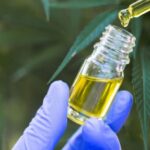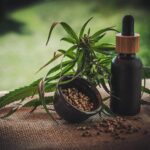Exploring US Trends in Emerging Cannabinoids Usage – Survey Insights
- Bernard Vos
Exploring the Rise of Novel Cannabinoids in the US: A Comprehensive Survey Analysis
In recent times, a wave of novel cannabinoids, like cannabidiol (CBD), cannabigerol (CBG), and cannabinol (CBN), is emerging in the American market. A recent survey sheds light on how Americans are adopting these compounds, with insights into their usage, perceptions, and the potential need for regulatory oversight.
The Growing Popularity of Cannabinoids Post-Farm Bill
Following the 2018 Farm Bill’s passage, the landscape of cannabinoid use in the United States has seen a significant shift. A notable proportion of the American population, approximately 25%, has experimented with these novel cannabinoids within the last year. This statistic emerges from a detailed cross-sectional survey conducted by Kevin Boehnke, PhD, from the University of Michigan Medical School, and his team. Their findings, published in a JAMA Network Open research letter, present a thought-provoking insight into the prevalence of cannabinoids like CBD, CBG, and CBN.
The survey, which encompassed responses from 1,169 individuals, reveals varied levels of engagement with these substances. While CBD emerges as the most commonly used compound, with 21.1% of participants reporting its use in the past year, other cannabinoids like delta-8-THC, CBG, and CBN show lower but significant usage rates of 11.9%, 5.2%, and 4.4%, respectively.
An area of concern highlighted by Boehnke relates to the regulatory landscape surrounding these products. Currently, many of these cannabinoid products do not undergo mandatory laboratory testing, raising questions about their safety and the presence of potential contaminants. This uncertainty extends to their content, which remains largely unknown. Additionally, the lack of age restrictions, particularly in online retail spaces, poses further challenges in ensuring consumer protection.
The study’s approach involved collaboration with the National Opinion Research Center (NORC) AmeriSpeak panel. Conducted between June 22 and 26, 2023, the survey targeted individuals aged 18 and above. A response rate of 17.5% was achieved, with a majority of respondents being female and having a median age of 48.

In terms of public awareness, CBD is the most recognized among the emerging cannabinoids, with 71.7% of respondents being aware of it. In comparison, awareness levels for delta-8-THC, CBG, and CBN are considerably lower. The survey also revealed significant demographic trends in cannabinoid use, including a higher likelihood of younger adults (18 to 39 years) using delta-8-THC products compared to older age groups.
An interesting correlation emerged between state cannabis laws and the use of specific cannabinoids. Living in states with medical or recreational cannabis laws appeared to negatively associate with delta-8-THC use, suggesting that prohibition policies might inadvertently drive individuals towards these less regulated options.
Limited Research and the Need for More Studies
While this survey provides valuable insights, it did not delve into usage patterns such as dosage and frequency. Furthermore, the potential for sampling biases was acknowledged. Nevertheless, the study underscores the necessity for ongoing public health surveillance and further research to understand the safety perceptions, motivations, and outcomes associated with these emerging cannabinoids.
The survey’s findings indicate a strong association between cannabis use and the likelihood of trying emerging cannabinoids. Notably, non-Hispanic Black Americans were less likely to use these new cannabinoid products compared to White Americans. Moreover, states without medical or recreational cannabis laws showed higher usage rates of delta-8-THC, highlighting a possible unintended consequence of cannabis prohibition.
Implications for Public Health and Safety
The survey’s results advocate for continuous public health monitoring, especially considering the lack of industry standards and the potential risks associated with cannabinoids similar to delta-9-THC. This concern is particularly relevant for adolescents and young adults.
Conclusion: The Road Ahead for Cannabinoid Research
This pioneering survey on the use of novel cannabinoids in the US suggests a significant rise in public interest and usage. The 50% increase in CBD use since 2019, as well as the prevalent use of other cannabinoids like delta-8-THC, CBG, and CBN, calls for a more regulated and researched approach. The need for future studies to better understand the safety, motivations, and outcomes of these products is clear. As these compounds continue to gain popularity, it becomes increasingly important
Source: MedPage Today
Frequently Asked Questions (FAQ)
What are the legal implications of using cannabinoids like CBD and delta-8-THC?
Yes, the legal implications vary by state. CBD is generally legal under federal law, but delta-8-THC’s legality can differ across states. It’s essential to check local regulations as some states have specific restrictions or have not legalized these compounds.
Are there any potential health benefits associated with using cannabinoids such as CBD and CBN?
Cannabinoids like CBD and CBN may offer health benefits. Research suggests CBD could help with anxiety, pain relief, and sleep disorders, while CBN is being studied for its potential effects on sleep and inflammation.
How do cannabinoids like CBG and CBN differ from CBD?
CBG and CBN differ from CBD in their chemical structure and potential effects. CBG is researched for possible anti-inflammatory and neuroprotective properties, whereas CBN is being studied primarily for its potential effects on sleep and pain relief.
Can using cannabinoids result in a positive drug test?
Using certain cannabinoids might result in a positive drug test. Products containing delta-8-THC or trace amounts of delta-9-THC could trigger a positive result. CBD products, if purely isolated, are less likely to cause this issue but cross-contamination during manufacturing could be a factor.
Are there any known side effects of using emerging cannabinoids like delta-8-THC?
Yes, there are known side effects of using cannabinoids like delta-8-THC, which can include dizziness, dry mouth, changes in appetite, and mood alterations. As with any supplement, individual reactions can vary, and it is advised to consult a healthcare professional before use.

E - Book
Everything you need to know about CBD!

Download our FREE eBook today!
Advice






